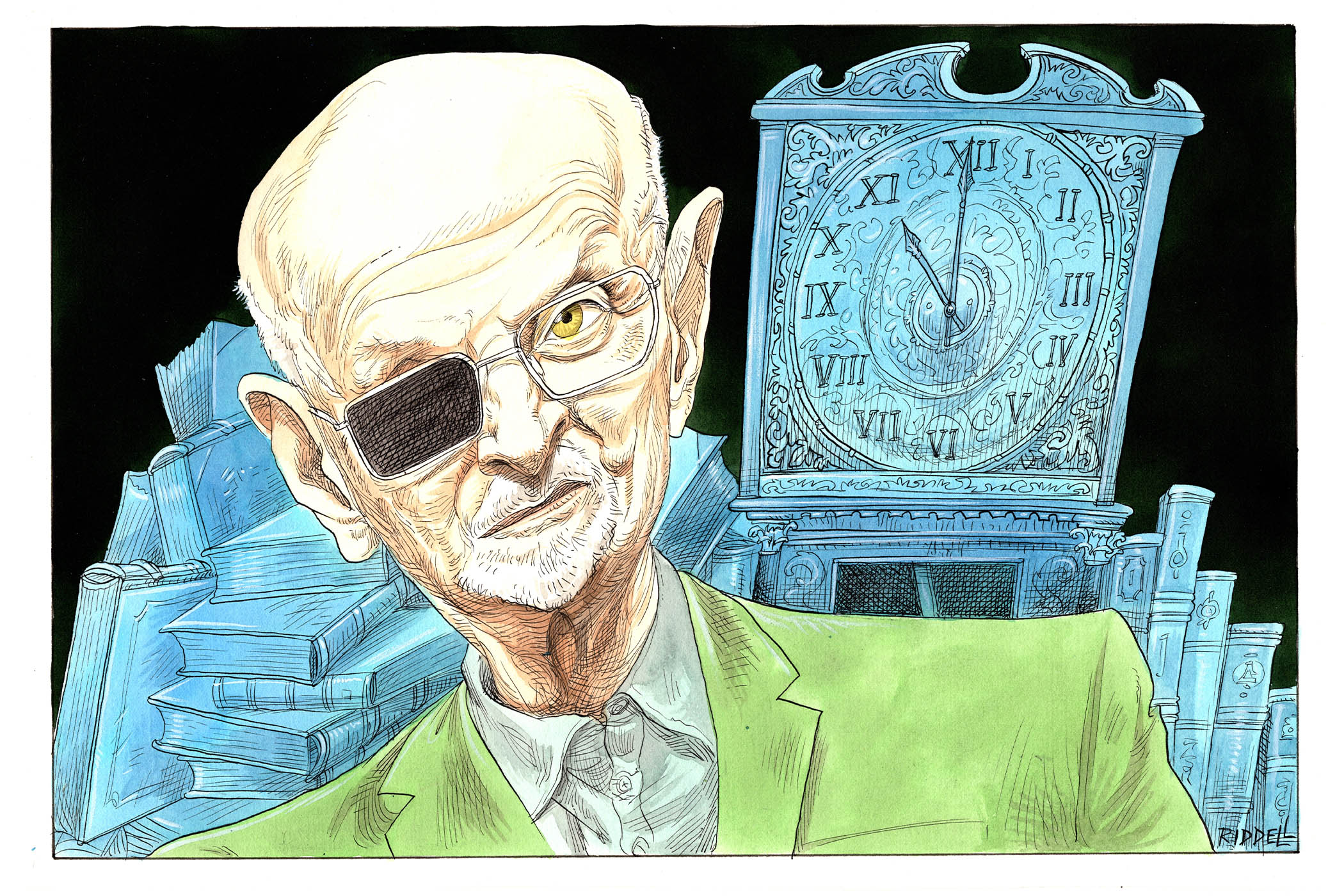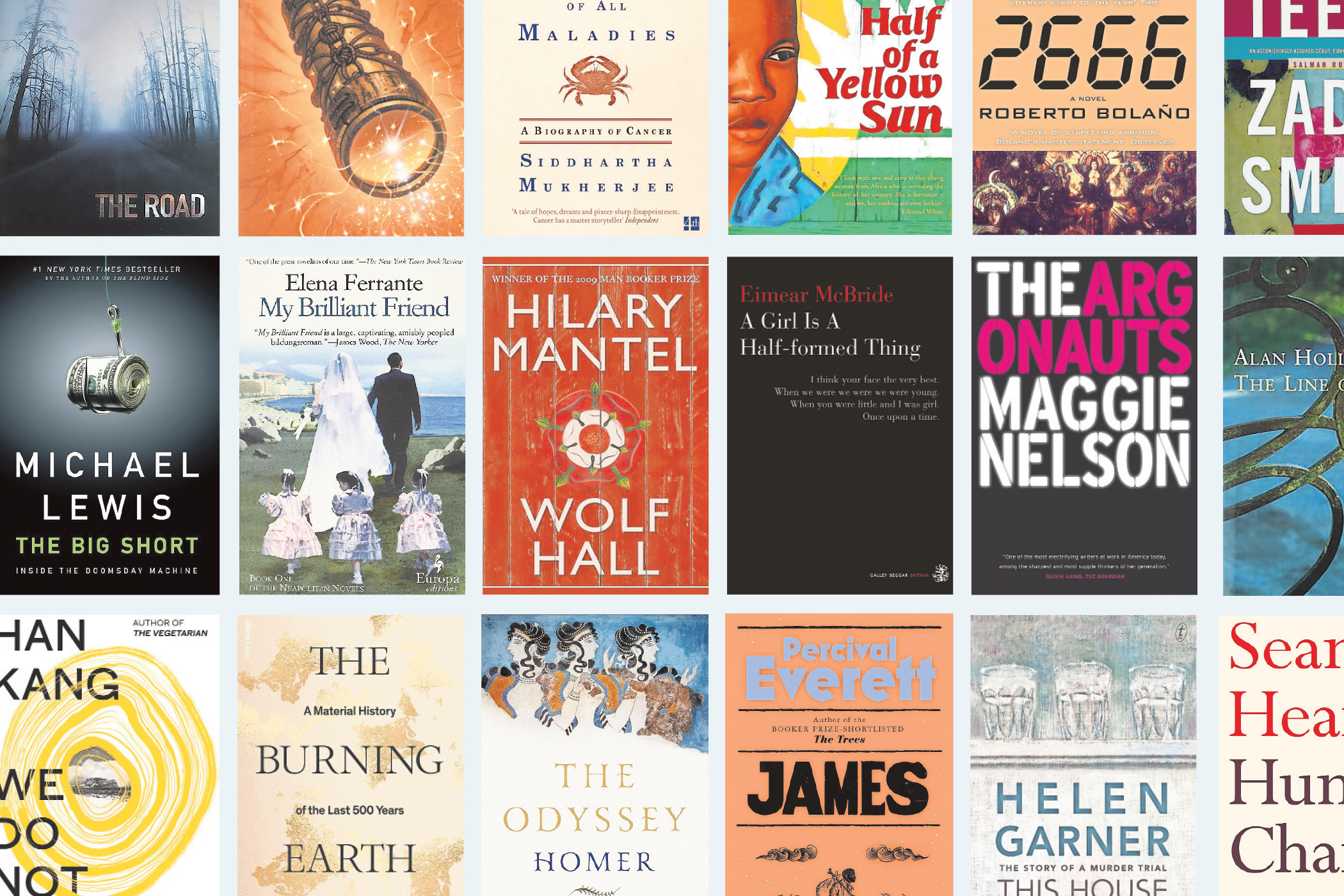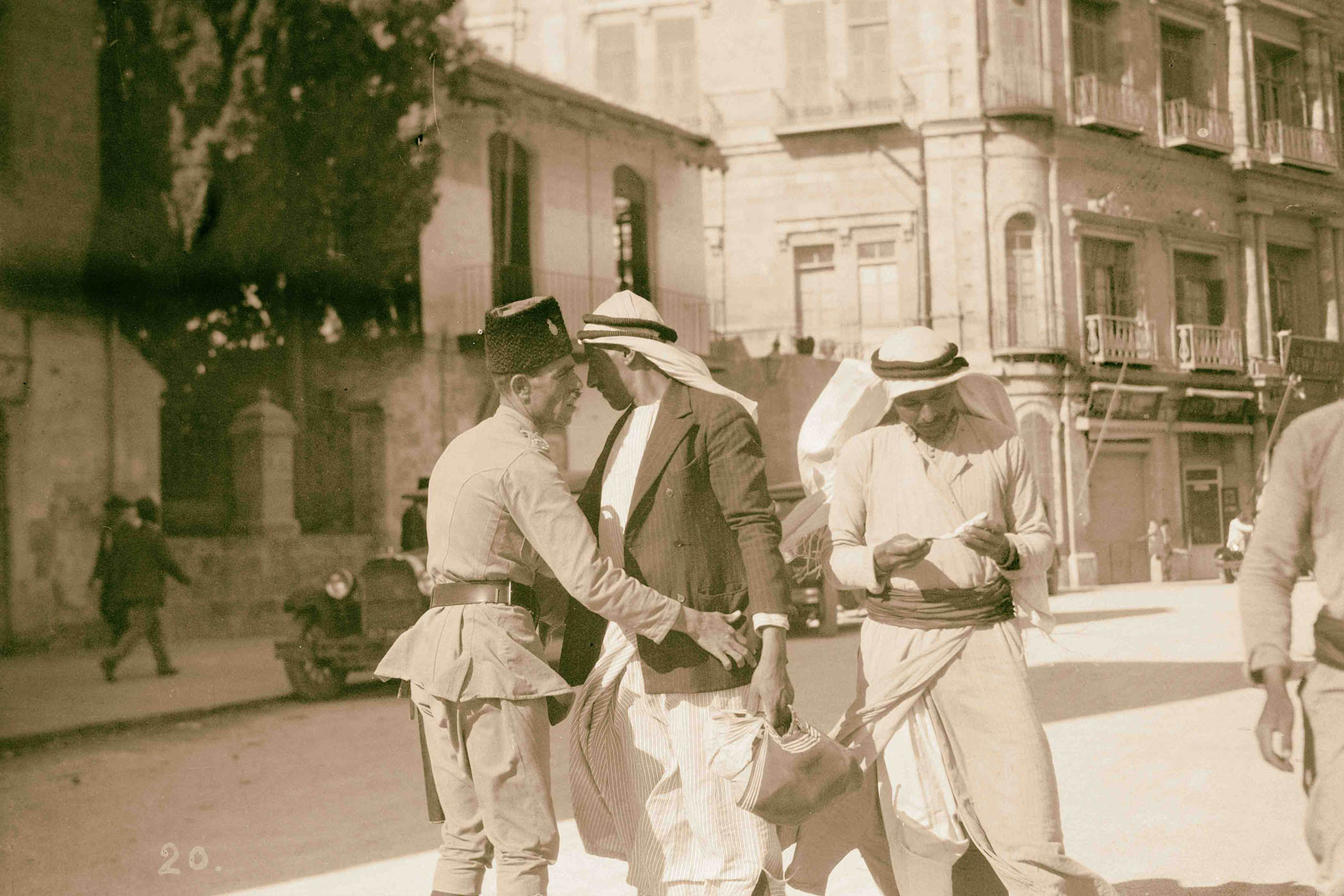Illustration by Chris Riddell
Knife: Meditations After an Attempted Murder, the memoir Salman Rushdie published last year, proved what much of his work since Shame (1983) has given readers ample reason to doubt: he is a brilliant writer. Nearly every page glints with some indelible bit of detail salvaged from the terror of his horrifying onstage attack in August 2022. It’s shocking, tender, even funny. His embarrassment at having to disclose his weight to the paramedics preparing to airlift him to hospital; the spools of saliva that ooze from a hole left in his cheek; joking with his wife about saving money on Ubers when they’re given a police escort – what piercingly real, human things to have put into print.
His new book, The Eleventh Hour, comprises five short stories, two of them previously published, the other three reportedly composed since the attempt on his life; the first fiction he has written since that day. Given how good Knife is – and you feel that Rushdie knew it needed to be – my heart sinks to find that he has reverted here to the prolixity that has long typified his output, offering noise, bombast and the accumulation of references as substitutes for character, scene-setting and drama.
Take one of the new stories, Oklahoma, a Paul Auster-ish yarn presented as cute metafiction – with preface and endnotes – about a novelist on a night-time drive, searching for his Kafka-obsessed uncle, also a writer: “As well as great Franz K, I thought about Godard, about Lemmy Caution entering les faubourgs d’Alphaville in his Ford Galaxie... And I thought of the narrator of Mary Shelley’s Frankenstein, also entering a town, Geneva, when it was completely dark.”
Related articles:
Even Rushdie seems unconvinced. “I shrugged off such mental wanderings,” the narrator tells us in the next paragraph. “They were ways of making myself feel more significant than I was.” But that sharp self-diagnosis is unlikely to compensate for the reader’s sense that time has been wasted – not least because he’s at it again within a page, interrupting a patiently constructed moment of suspense to point out a lake resembling “the liquid surface of the planet Solaris in Tarkovsky’s great film”, before later informing us that the setting “may be compared to the town of Comala in Pedro Páramo by the great Mexican writer Juan Rulfo”.
In Late, a ghost story about a gay writer in postwar Cambridge, the dead protagonist befriends a student, who – wondering why she’s been chosen by him – runs through a mental checklist of supernatural plotlines in Hamlet, Macbeth, Dickens and Oscar Wilde, before deciding that none of them shed any light. Time wasted again, but not, apparently, for Rushdie, who once more has contrived a way to let us know he’s on first-name terms with the greats. Here is not only “Franz K” but “Ludwig van, Wolfgang A”, and others. “Guess what, René?” says one narrator, assessing Descartes’s theory of mind: “Mostly right.” “TS Eliot... said ‘In my beginning is my end.’ Well, Tom, agree to disagree.”
The relentless self-positioning sets a high bar for Rushdie’s own literary powers that is rarely met. Here’s how the aforementioned Cambridge student falls for a boyfriend: “He had been at school in Paris during les événements, the student uprising, the night of the barricades, the general strike, and then de Gaulle’s crushing victory in the elections, which ended the revolt... She listened quietly… A moment later, somehow, they were embracing.”
Rushdie offers noise and bombast as substitutes for character, scene-setting and drama
This is storytelling straight off the peg – no dynamic action, no telling detail truly noticed, as Knife did so spectacularly – and the laziness isn’t confined to the new work. The opening story, In the South, about two retired 81-year-olds, looks at first glance like an eyewitness report from the frontlines of old age – “the daily penances of bowel and urethra, of back and knee” – but it was first published in 2009, when Rushdie was still very much a man about town, his love life splashed across gossip columns.
It begins when the central duo steps out on to neighbouring balconies in the morning “like characters in an ancient tale” – what was that about ways of making yourself feel significant? When the friends first speak, we get synopsis in place of dialogue: “Their words were not new. These were ritual speeches, obeisances to the new day, offered in call-and-response format, like the rhythmic dialogues or ‘duels’ of the virtuosi of Carnatic music during the annual December festival.”
There’s that reflex, again: looking past the subject, telling us not what it is, but what it’s like, with reference to everything he knows about art, film, literature, music, but not seeing what’s actually in front of him. A measure of respite comes from the longest story here, The Musician of Kahani, set in Mumbai between the late 90s and the Covid-19 pandemic. Mixing fable with social satire, it turns on the revenge taken by a gifted pianist when her marriage to a cricket star runs aground. Propelled by cartoonish villainy and justice, it’s simple but effective – not free from the defects prevailing elsewhere, but a satisfying tale, by far the book’s best. Even its self-referential tricksiness is poignant: narrated by Rushdie, the story calls back to Midnight’s Children (1981) and the Bombay of his youth: “Many of the stories I have told were born here. I think this will be the last such story. It’s... almost time to sleep.”
The Musician of Kahani might easily have been published as a standalone – attractively jacketed for an impulse purchase at the tills, even a Christmas bestseller – but instead it’s weighed down by the oppressive weightlessness of everything else in the book. The collection ends with The Old Man in the Piazza, first published in 2020, an already dated parable about the seductions of social media, centred on the titular “old man” who enjoys watching (and, ultimately, adjudicating on) the petty disputes of a geographically unspecific town. Its main interest now lies in its placement as the final story, which means that Rushdie has chosen its last sentence – “Our words fail us” – as the final line of the book, a contradiction of “Words are the only victors”, the last sentence of his 2023 novel, Victory City, completed before he was assaulted but published in the aftermath.
That line was widely hailed as a hate-defying credo. Maybe Rushdie no longer believes it. Either way, his pessimistic revision makes for a distinctly flat ending. The Musician of Kahani would have been a more rousing sign-off, as the unearthly power of the main character’s piano-playing contrives to bring the entire planet to a standstill, causing conflagration and pandemic. This is, perhaps, how it has felt to be the author of The Satanic Verses.
At 78, Rushdie has little reason to start being modest. At the story’s close – when the devastation wrought by the protagonist’s art has finally run its course – he concludes: “So Chandni the Musician of Kahani can be said to be one of the very rare artists whose work directly impacted and shaped the world in which she lived.” Can anyone think of another?
The Eleventh Hour by Salman Rushdie is published by Jonathan Cape (£18.99). Order a copy from The Observer Shop for £16.14. Delivery charges may apply
Editor’s note: our recommendations are chosen independently by our journalists. The Observer may earn a small commission if a reader clicks a link and purchases a recommended product. This revenue helps support Observer journalism



